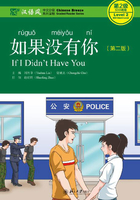
Foreword
When it comes to learning a foreign language, relying on a set of textbooks or spending time in the classroom is not nearly enough. Memory is eroded by time; you keep forgetting what you have learned. Haven't we all been frustrated by our inability to remember new vocabulary? You learn a word and quickly forget it, so next time when you come across it you have to look it up in a dictionary. Only then do you realize that you used to know it, and you start to blame yourself, “why am I so forgetful? ” when in fact, it's not your shaky memory that's at fault, but the fact that unless you review constantly, what you've learned quickly becomes dormant. The Chinese Breeze graded series is designed specially to help you remember what you've learned.
Everyone learning a second language has his or her way of jogging his or her memory. For example, some people make index cards or vocabulary notebooks so as to thumb through them frequently. Some simply try to go through dictionaries and try to memorize all the vocabulary items from A to Z. This spirit is laudable, but it is a painful process, and the results are far from sure. Chinese Breeze is a series of graded readers purposely written by professional authors. Each reader not only incorporates all the vocabulary and grammar specific to the grade but also contains an interesting and absorbing plot. They enable you to refresh and reinforce your knowledge and at the same time have a pleasurable time with the story. If you make Chinese Breeze a constant companion in your studies of Chinese, you won't have to worry about forgetting your vocabulary and grammar. You will also develop your feel for the language and root it firmly in your mind.
Thanks are due to Nyan-ping Bi, Xianmin Liu, and Ping Wei for arranging more than sixty students to field-test several of the readers in the Chinese Breeze series. Professor Tao-chung Yao at the University of Hawaii. Ms. Yu Li and Ph. D. students Ann Kelleher and Nicole Richardson of UC Davis provided very good editorial suggestions. We thank our colleagues, students, and friends for their support and assistance.